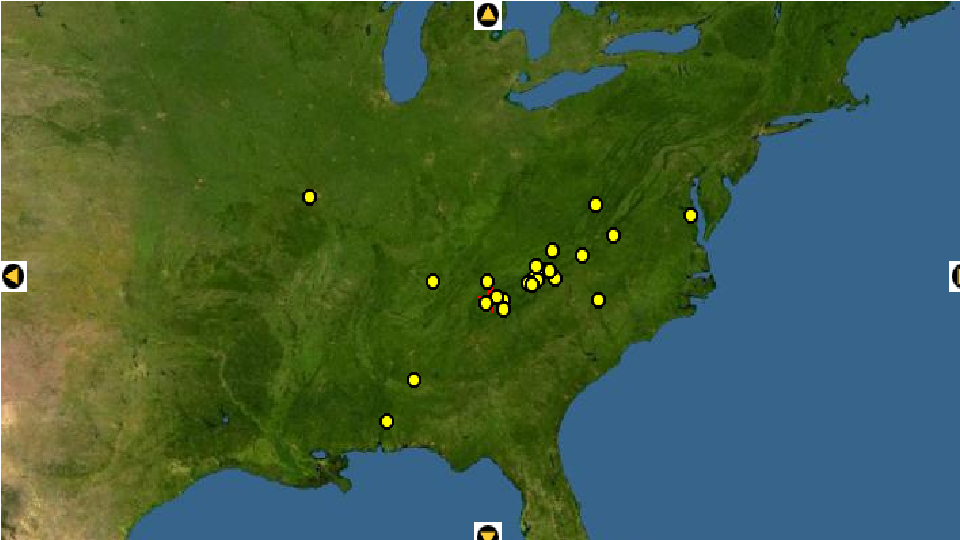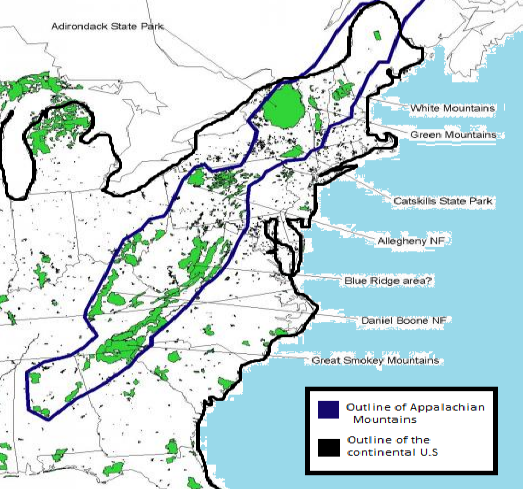Habitat
Generally speaking, an organism representing the class, Gastropoda, can reside in a large amount of habitats due to its ability to retract back into its shell and seal it with its operculum (Dourson 2010). This allows the organism to remain in a dormant and comfortable status until conditions improve. In terms of the Balsam Globe, there appears to be a large gathering concentrated on the eastern part of the United States.
There was a reported sighting of the Balsam Globe in Roan Mountain. It was found at an elevated region of 4500 feet (Withers 2009). Roan Mountain is found in Tennessee and is well known for its beauty. The mountain range extends for five long miles and is well known for its acres of rhododendrons known as "The Natural Gardens". There is a unique forest in this region that holds spruces and firs that are more commonly found in Canada. During the Ice Age these trees were more prevalent farther south but as the ice retreated so did the forests. The mountain tops still hold these ancient features and this is part of why more unique species tend to survive survive in this part of the United States, like the Balsam Globe (Roan Mountain 2012).
Gastropoda can flourish at elevated, sloped regions with trees for the provision of leaf litter. The pH is important because snails need calcium. Calcium is beneficial for their shells, reproduction and body regulation (Dourson 2010). These two elements are correlated as the higher the concentration of calcium, limestone in this case, the higher the pH (Warton 2005). These conditions fit well in the case of Mesodon andrewsae which correlates with the physical location of the Appalachian Mountains. The snails have an indirect attraction to a higher soil pH which stems from a high calcium concentration, increased vegetation, higher elevation and steeper slopes (Hotopp 2002). This is what the Appalachian Mountains can provide, hence the increased population within the specific region.
In this habitat the snail plays a major role in its ecological niche. A niche is how a local community of organisms interact with each other to create a functioning ecosystem. There are three main ways of interactions between organisms within their respective community: predation, parasitism, and competition (Hickman 2011). A plethora of animals prey on snails. Without the Balsam Globe, its predators would not be able to flourish as well as they do. The Balsam Globe is dependent on its environment. Living in the Appalachian Mountains means that there is a specific lay of land that the snail thrives on. The mountains provide forests. These forests provide shelter for the snails, specifically within the leaf litters. The soil is rich in calcium in these regions which is attractive to the majority of snails in the eastern part of the United States (Hotopp 2002). Mesodon andrewsae rely on what the Appalachian Mountain region can provide for them, and in turn the snail plays a role in supplementing the surrounding organisms to create an inhabitance in equilibrium.
<Classification Home Nutrition>

